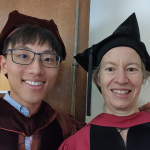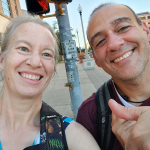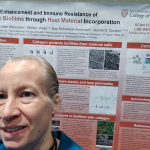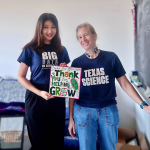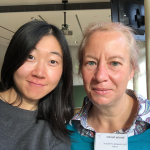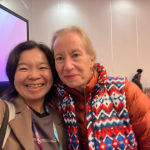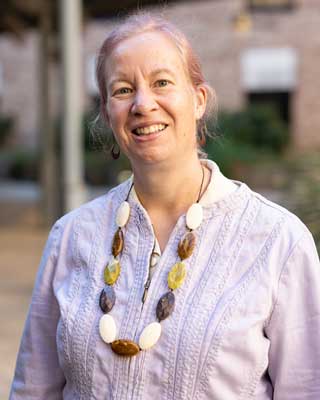
Vernita Gordon, Ph.D.
Professor
Department of Physics
College of Natural Sciences
UT Austin
Growing up in rural and suburban Georgia, Dr. Gordon read copious amounts of science fiction and drank in Star Trek like a sponge, deciding very early on she wanted to be an astronaut. Then she read somewhere that there were only two pathways to being a NASA astronaut: you could be a rock-star test pilot and get to be mission commander or co-pilot, or you could be a PhD-level scientist or engineer and be a mission specialist. Nearsightedness prevented her (or so she thought, she never deeply investigated) from being a test pilot, so Dr. Gordon knew she needed to go into some kind of science or engineering field. This plan was strongly supported by her parents, who are math and science teachers (but who are in no way responsible for her science fiction obsession, which bewilders them to this day).
Her senior year in high school, Dr. Gordon took her first physics class. One day, the teacher was applying momentum to how a rocket works: stuff comes backwards out the tail of the rocket, so conservation of momentum means the rocket moves forward. Dr. Gordon asked, “The rocket is losing mass all the time it’s firing, so how can anyone ever predict what it will do? How can anyone design a launch plan or a mission?” (You can see she was still very into the astronaut plan.) Dr. Gordon's teacher told her that there was a way to understand and mathematically predict this, but you had to use calculus. She didn’t go into any deeper explanation, because this was not a calculus-based class and only about half the students were taking calculus at that time. Dr. Gordon thought this was really cool, and it made her realize that there was a LOT more to learn about physics, and that she had only scratched the surface so far. This was the biggest influence in her decision to enter college as a physics major.
During college, Dr. Gordon kept mentally vacillating about whether physics was really what she wanted to do (Dr. Gordon was also tempted by a Classics major, despite its total lack of astronaut-applicability), but physics was fun enough that she stayed with that. Sometime in college her astronaut ambition began waning, but she thought that being faculty (and maybe part-time astronaut) seemed like fun, so Dr. Gordon went to graduate school. In graduate school, she learned that she enjoyed research far more than she had expected. A big part of that enjoyment came from learning that, contrary to her expectations, research could be a very social, collaborative, interpersonal process, and that good research involved a great deal of creativity.
Dr. Gordon enjoyed research enough in grad school that she went on to do two postdocs. In the process of doing the first postdoc, she realized that she was very interested in biological physics, especially work that impinged on biomedical topics, where she could see that people’s lives could one day be improved by the work she did. Dr. Gordon also realized that she really enjoyed thinking about biological systems that are cell-sized and larger. During her second postdoc, Dr. Gordon met her husband, who is a computer scientist (and an avid tea-drinker, to which he has almost converted her).

